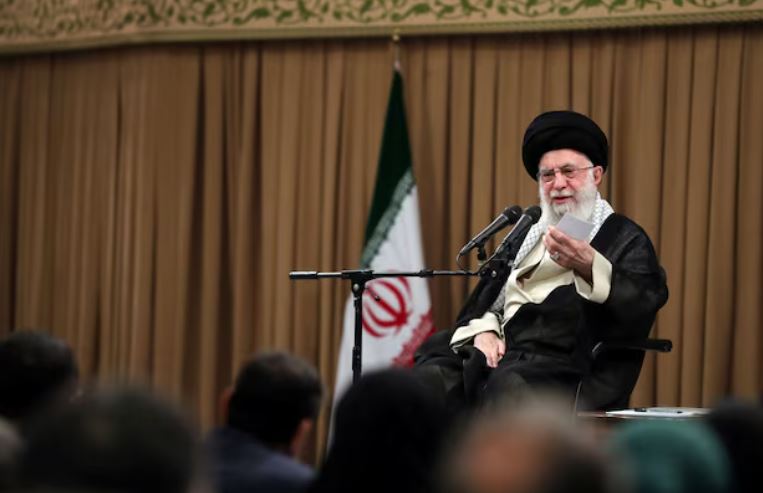Context of Rising Tensions
In a significant escalation of Middle Eastern hostilities, Iran has signaled its intention to implement Supreme Leader Ayatollah Ali Khamenei’s directive to “harshly punish” Israel. This order follows the assassination of Hamas leader Ismail Haniyeh in Tehran, which Iran and Hamas attribute to Israeli actions. The broader implications of this directive suggest a potential deepening of the already severe conflict between Israel and Hamas, which has engulfed the Gaza Strip.
Implications of Khamenei’s Directive
According to Ali Fadavi, a deputy commander of Iran’s Revolutionary Guards, Khamenei’s orders are unequivocal: the retaliation for the assassination of Haniyeh will be executed decisively. Fadavi’s statements, reported by Iranian media, underline Tehran’s intent to address what it perceives as a significant provocation by Israel. This rhetoric has stoked fears that the ongoing conflict could escalate into a larger regional confrontation, further destabilizing an already volatile situation.
The assassination of Haniyeh, alleged to have occurred on July 31, has intensified anxieties regarding the potential for broader conflict. Israel has neither confirmed nor denied involvement in the killing, which has exacerbated tensions and led to increased international concern about the possible expansion of the war between Israel and Hamas.
International Reactions and Diplomatic Efforts
In response to the escalating rhetoric, the United States has reiterated its commitment to defending Israel, as stated by White House national security spokesperson John Kirby. The U.S. views the Iranian threats seriously and is prepared to deploy substantial resources in the region to support its ally. Kirby’s comments reflect the broader international apprehension regarding Iran’s intentions and the potential for further escalation.
Iran’s mission to the United Nations has clarified that its planned response to Haniyeh’s assassination is distinct from ongoing efforts to negotiate a ceasefire in Gaza. While Tehran maintains that its retaliation will not directly impact the ceasefire discussions, it remains hopeful that the timing of its response will not undermine the potential for peace talks. This nuanced position highlights the complexity of navigating diplomatic efforts amid escalating tensions.
Diplomatic Negotiations for Ceasefire
The United States, along with Egypt and Qatar, has called for negotiations between Israel and Hamas to finalize a ceasefire and address the release of hostages. These talks, scheduled for August 15 in Doha or Cairo, represent a critical opportunity to de-escalate the conflict. Israel has committed to attending, while Hamas is currently reviewing the proposed offer.
Iran’s U.N. mission has expressed support for any agreement that results in a lasting ceasefire, emphasizing that any potential agreement with Hamas will also be recognized by Tehran. However, the Iranian government asserts its right to self-defense in response to what it describes as Israeli acts of terrorism. This assertion underscores the continued tension between Tehran and Tel Aviv, complicating efforts to achieve a resolution.
Conclusion: A Critical Juncture
The unfolding situation underscores a critical juncture in the Middle Eastern conflict. With Iran preparing to act on Khamenei’s directive and ongoing international efforts to broker a ceasefire, the coming weeks will be pivotal in determining the trajectory of the conflict. The interplay between retaliatory actions and diplomatic negotiations will significantly influence regional stability and the broader geopolitical landscape.
Summary
Iran’s Supreme Leader Khamenei has ordered severe retaliation against Israel for the assassination of Hamas leader Ismail Haniyeh. This directive has heightened regional tensions and raised concerns about further escalation. Concurrently, international efforts to negotiate a ceasefire in Gaza continue, with the potential for diplomatic resolution remaining a key focus amid the crisis.
Key Learning Points
| Key Point | Details |
|---|---|
| Khamenei’s Directive | Iran’s Supreme Leader has ordered severe retaliation against Israel for Haniyeh’s assassination. |
| International Reactions | The U.S. has pledged support for Israel and taken Iran’s threats seriously. |
| Diplomatic Efforts | Negotiations for a Gaza ceasefire are scheduled, with hopes for de-escalation despite tensions. |
| Iran’s Position on Ceasefire | Iran views its retaliation as separate from ceasefire talks but aims not to disrupt them. |
Soumya Smruti Sahoo is a seasoned journalist with extensive experience in both international and Indian news writing. With a sharp analytical mind and a dedication to uncovering the truth, Soumya has built a reputation for delivering in-depth, well-researched articles that provide readers with a clear understanding of complex global and domestic issues. Her work reflects a deep commitment to journalistic integrity, making her a trusted source for accurate and insightful news coverage.



